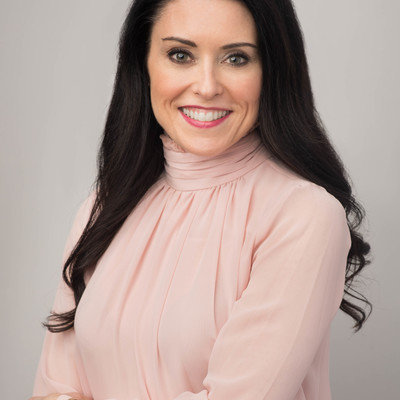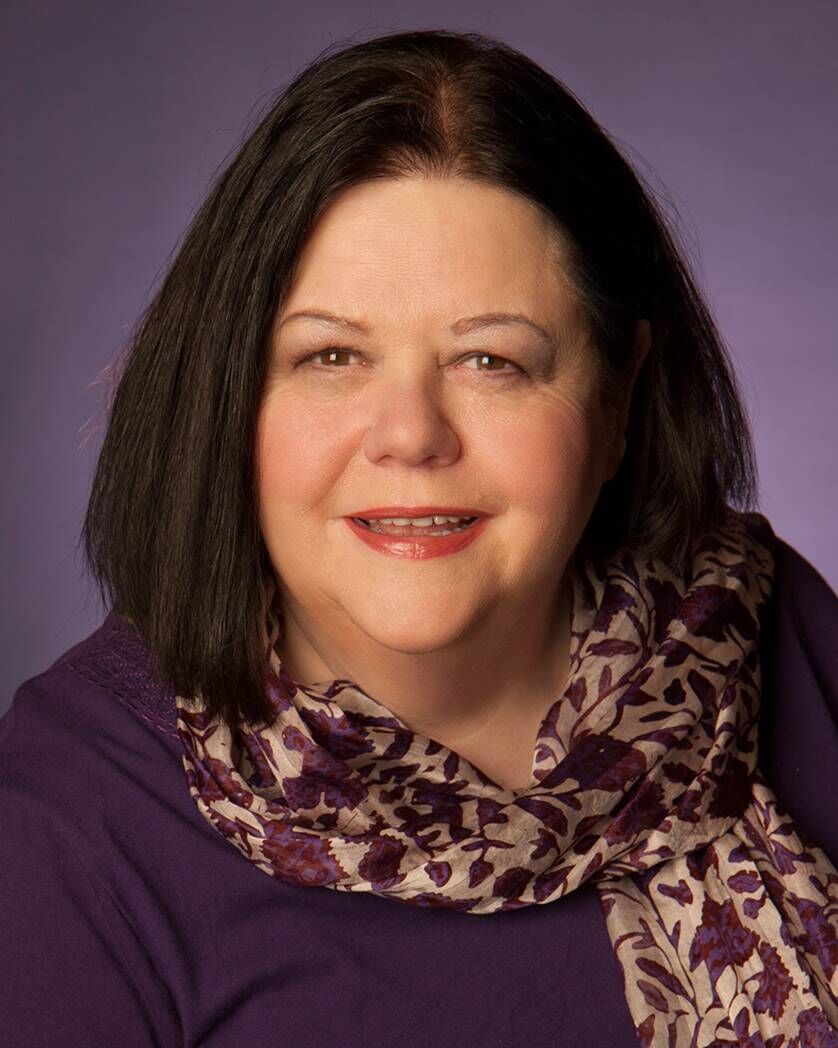Follow your passion and trust your instincts. If you feel you have something important to share, take the chance and do it.
As part of my series about “How to write a book that sparks a movement” I had the great pleasure of interviewing Beverly Engel.
Beverly Engel is an internationally recognized psychotherapist and an acclaimed advocate for victims of sexual, physical, and emotional abuse. She is the author of 23 self-help books, including the best-selling The Right to Innocence: Healing the Trauma of Childhood Sexual Abuse, the first recovery book on the subject as well as four best-selling books on emotional abuse: The Emotionally Abusive Relationship, The Emotionally Abused Woman, and Encouragements for the Emotionally Abused Woman, and Healing Your Emotional Self. Her publishers have included: Simon and Schuster, Ballantine, Contemporary and John Wiley and Sons (her last 7 books). Engel is a licensed marriage and family therapist, and has been a psychotherapist for 35 years.
Beverly’s books have often been honored for various awards, including being a finalist in the Books for a Better Lifeaward. Many of her books have been chosen for various book clubs, including One Spirit Book Club, Psychology TodayBook Club and Behavioral SciencesBook Club. Her books have been translated into many languages, including Japanese, Spanish, Chinese, Korean, Greek, Turkish and Lithuanian.
In addition to her professional work, Beverly frequently lends her expertise to national television talk shows. She has appeared on Oprah, CNN, Starting Over,Ricki Lake, Sally Jesse Raphael,Donahue, and other programs in the United States and Canada. She has regularly contributed to Psychology Today, and has been featured in a number of newspapers and magazines, including The Chicago Tribune, The Washington Post, The Los Angeles Times, The Cleveland Plain Dealer, The Denver Post, Oprah Magazine, Cosmopolitan, Ladies Home Journal, Redbook, Marie Claire, Real Simple and Shape.
Beverly’s latest book is entitled, I’m Saying No! Standing Up Against Sexual Assault, Sexual Harassment and Sexual Pressure.
Thank you so much for joining us! Can you share the “backstory” about how you grew up?
As I shared in my memoir Raising Myself: A Memoir of Neglect, Shame, and Growing Up too Soon I was raised as an only child by a single mother in near poverty. I basically raised myself because my mother had to work and I had no other relatives around to help out. That meant that I had to go out in the neighborhood to search for friends or anyone who was willing to spend time with me. Fortunately, I had a very gregarious personality. Even so, I had a very unhappy and lonely childhood due to the fact that I was neglected and emotionally abused by my mother and sexually abused at age nine and raped at age 12.
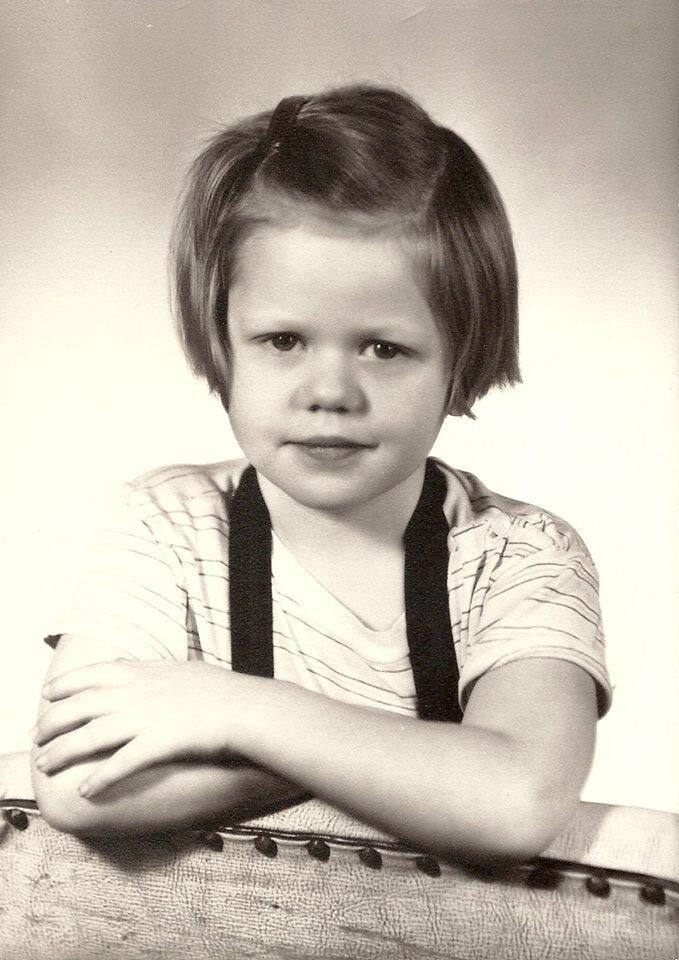
When you were younger, was there a book that you read that inspired you to take action or changed your life?
Yes, the book was called Spoon River Anthology by Edgar Lee Masters. It was a collection of poems about a fictitious town called Spoon River. The poems served as epitaphs on the townspeople’s graves. My mother and I read the book together, huddled up close to keep us warm because we had no heat. It was a rare time when I had my mother’s full attention, when she wasn’t drinking with her friends. As my mother read each poem/epitaph we got to know more about the townspeople — how their lives were interconnected and how they treated one another. The poems revealed people’s secrets and their cruelty toward one another. They exposed hypocrisy and sometimes revealed how people had gotten revenge for the harm that had been done to them.
I could tell my mother was moved by the words in the book. Sometimes she’d cry a little as she read one of the poems, and other times she would sit quietly without saying anything after she’d finished reading one, like she was letting it sink in. Often times she nodded her head in understanding as she read a particular poem. Like entry number 8, Amanda Barker:
Henry got me with child,
Knowing that I could not bring forth life
Without losing my own.
And even at nine years old, there was one entry that touched me personally. It was entry number 202, Mabel Osborne:
Your red blossoms amid green leaves
Are drooping, beautiful geranium!…
…Everyone knows that you are dying of thirst,
Yet they do not bring water!…
…And I, who had happiness to share
And longed to share your happiness;
I who loved you, Spoon River,
And craved your love,
Withered before your eyes, Spoon River —
Thirsting, thirsting…
Because of the book I realized, for the first time, that other people suffered the way I was suffering. And for the first time, without telling me so explicitly, my mother was telling me she had suffered. She had always been a very secretive person, sharing very little about her past, or even about her family history. Seeing how she reacted to the book gave me a glimpse into her feelings, her soul.
Because of the book I learned there was an avenue in which a person could express their feelings and their suffering.
What was the moment or series of events that made you decide to bring your message to the greater world?
I studied psychology in college because I wanted to understand my own and my mother’s behavior. All through childhood I suffered from a terrible sense of shame and acted out in numerous ways because of it (shoplifting, eating disorders). I continued to suffer during my 20s and 30s with sexual promiscuity, alcohol abuse and depression.
Even though I sought therapy several times, none of the therapists knew how to work with victims of sexual abuse and so I didn’t get the help I desperately needed. In fact, the first psychologist I saw while still in high school after a suicide attempt ended up telling me, “You are a very bright and articulate young woman. You know you were sexually abused and you know how it affected you. Now you just need to move on and not let it affect your future.”
That message was the absolute worst thing I could have heard. The idea that I could just “move on” when I found it impossible to do so, ended up adding to my guilt and shame. I wondered, “What is wrong with me?” when I continued to suffer from many symptoms.
I became a psychotherapist specializing in issues of abuse because I wanted to help other victims of abuse in the way I had not been helped. I wrote my first book, The Right to Innocence: Healing the Trauma of Childhood Sexual Abuse because I wanted to help other victims of sexual abuse by validating their feelings and by explaining to them why they acted as they did.
I also wrote it because child sexual abuse had not yet been exposed as the major problem that it is. I was raised by a secret keeper and I had learned how damaging keeping secrets can be to a person. I wanted to expose this dirty little secret to the world.
What impact did you hope to make when you wrote this book?
I wanted other victims of sexual abuse to not feel alone, to understand how the abuse had affected them, to not continue believing that it was their fault somehow and give them permission to feel and express their anger and pain at having been abused. And mostly, I wanted to offer them hope — hope for recovery, hope for a better life.
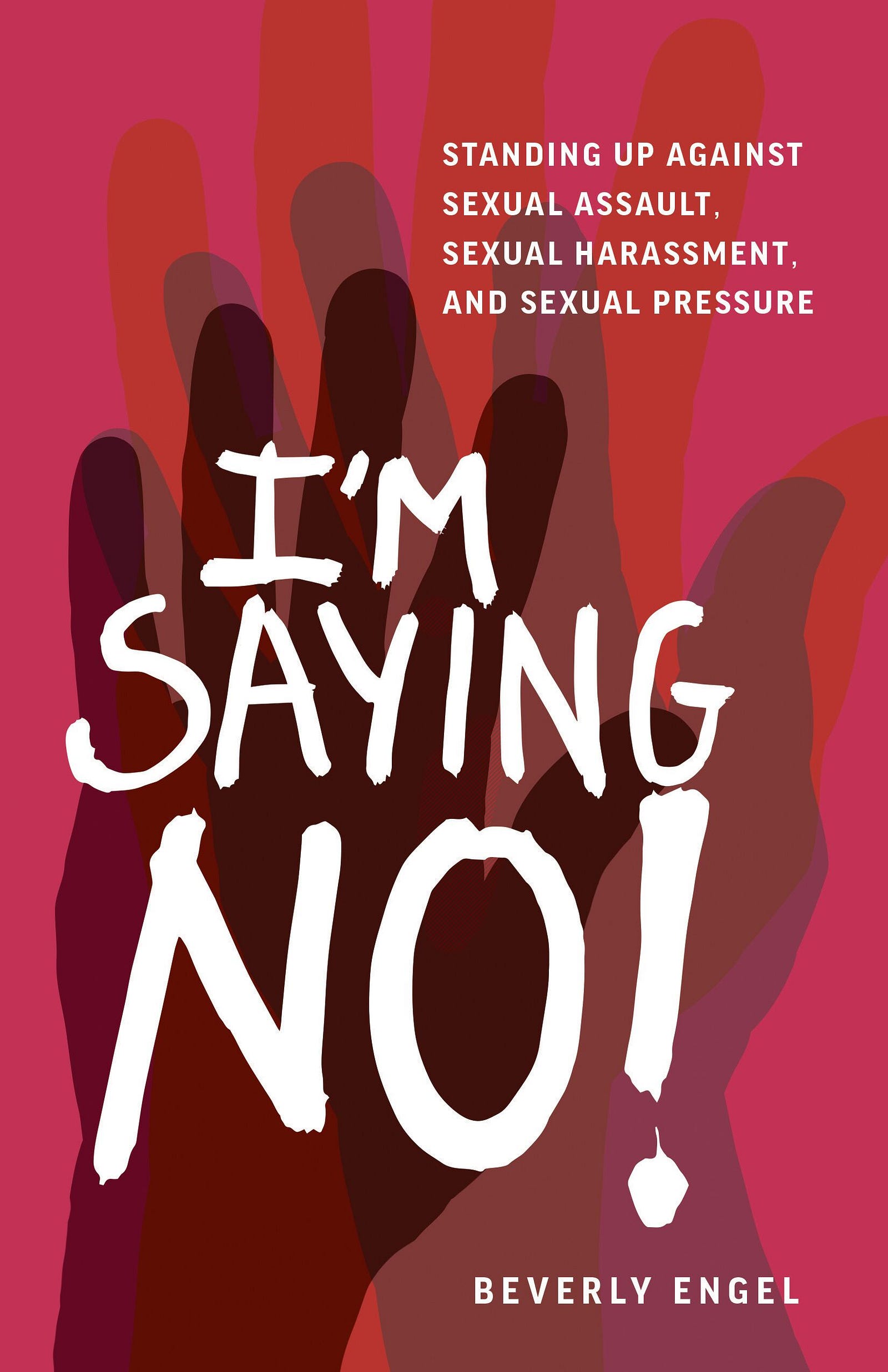
Did the actual results align with your expectations?
Absolutely. The book was an instant bestseller. It was the first “recovery” book written for victims of child sexual abuse and I heard from many victims thanking me for writing the book.
What moment let you know that your book had started a movement?
I was asked to be on many TV and radio programs, including Oprah, Phil Donahue, and Ricki Lake. Often I was the first person to speak openly about child sexual abuse. I was also asked to be the keynote speaker at various Psychology Conferences.
At one such conference all the speakers and workshop leaders had dinner together and as I looked around I was amazed to see some of the most famous therapists at the time, including: John Bradshaw, Claudia Black, Virginia Satir, and Albert Ellis. I was delighted and somewhat shocked to realize I was now considered a part of this group.
What kinds of things did you hear right away from readers? What are the most frequent things you hear from readers about your book now? Are they the same? Different?
They thanked me for writing the book because before they read it they thought they were the only one being abused. They also thanked me because I offered them hope — hope for healing and recovery. Some told me I saved their life because they had been deeply depressed and suicidal before reading the book.
I have written 23 self-help books since then and the feedback from readers remains the same — they no longer feel alone, they feel validated and grateful that someone finally understands them and they feel relieved to know they can recover.
I was also the first person to write about emotional abuse. In fact, I was the first psychotherapist to identify emotional abuse as being a major problem. My book The Emotionally Abused Woman has helped thousands of women understand, for the first time, that they were being abused.
What is the most moving or fulfilling experience you’ve had as a result of writing this book?
It is always gratifying to hear from victims of both sexual and emotional abuse but what I find particularly moving is hearing from people who, because of reading my books, have come to the realization that they were at risk of becoming a sex abuser themselves or that they are now aware that they have been emotionally abusive toward their partner. These people tell me that because I shared my own experiences of repeating the abuse I suffered and that it is an understandable consequence of being sexually or emotionally abused, they felt courageous enough to admit their own tendency to abuse others. They tell me that because they didn’t feel me judging them, they felt free to admit it to themselves and to me and to reach out for help.
The thought that I may have saved even one child from being sexually abused or saved one partner or child from continuing to be emotionally abused is one of the most moving experiences I’ve ever had.
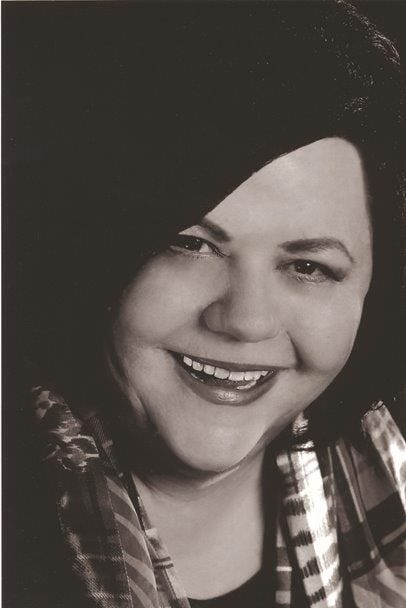
Have you experienced anything negative? Do you feel there are drawbacks to writing a book that starts such colossal conversation and change?
Yes, I had such low self-esteem when my first book came out that I wasn’t emotionally prepared for such success or recognition. You’d think that someone who had been so shamed would embrace success but I reacted by becoming egotistical and by trying to sabotage my success. This is a common phenomenon but at the time I wasn’t aware of it and felt terribly shamed by it.
Can you articulate why you think books in particular have the power to create movements, revolutions, and true change?
Sometimes a book is the only avenue a person has to learn the truth about something important, like child sexual abuse. When I wrote my first book people were just beginning to seek counseling for sexual abuse but most people were still afraid to do so. Many were too ashamed to come forward, many didn’t trust therapists, many were afraid to tell their story for fear of not being believed or of retribution from their abuser, and many didn’t have the money for therapy. Therefore, a book on how to recover from child sexual abuse was a God-send to many.
My books have been translated into many different languages, including Spanish, Greek, Chinese, Japanese, Lithuanian, Turkish and Korean. I receive emails from people all over the world who tell me one of my books has saved their life. Many of these people live in remote areas where they don’t have access to therapy and so my books are the only avenue for their healing and recovery.
What is the one habit you believe contributed the most to you becoming a bestselling writer?
Trusting my instincts. For example, no one had written a recovery book focusing on the issue of emotional abuse and I knew it was an important issue because so many of my clients were suffering from it. But when I suggested it to my publisher they were not interested. Fortunately, I decided to pitch the idea to another publisher who loved the idea.
What challenge or failure did you learn the most from in your writing career?
I learned to not focus on Amazon ratings. Often it takes time for a book to “find its audience.” Several of my books didn’t have the highest rankings in the beginning but as time went by and readers recommended the book to others, the rankings improved. Most of my 23 books are still in print, sometimes after 20 years.
Many aspiring authors would love to make an impact similar to what you have done. What are the 5 things writers needs to know if they want to spark a movement with a book?
1. Follow your passion and trust your instincts. If you feel you have something important to share, take the chance and do it.
2. Write with an open heart. Even if you are writing a non-fiction book, share as much about yourself as you can because readers are hungry for the truth and they feel good when they can identify with the author.
3. Don’t doubt yourself and don’t let others discourage you. When I first told my mother I was writing a book on child sexual abuse she said, “Oh honey, no one wants to read a whole book on that topic. Why don’t you just write a magazine article?” I didn’t let her discourage me and I’m so happy I didn’t.
4. Persevere. The Right to Innocence was a very difficult book to write because I was healing myself as I wrote the book. That meant that many times I had to stop writing to allow myself to process my own memories and feelings. But I kept going back to the writing, I persevered.
5. I suggest you just sit down and write and don’t let your inner critic stop you. I always write without editing myself and then go back later to do any editing.
The world, of course, needs progress in many areas. What movement do you hope someone (or you!) starts next?
I believe we still need to explore more about the emotion of shame, especially in connection with abuse. Those who have been abused carry their shame throughout their lives and this shame can cause people to abuse themselves and others. My latest book, I’m Saying No! Standing Up Against Sexual Assault, Sexual Harassment and Sexual Pressure addresses the issue of shame and how important a factor it is in victims not reporting child sexual abuse and rape. I also have an upcoming book entitled Prison of Shamewhich addresses the shame victims experience when they are emotionally abused and how shaming is a primary form of emotional abuse.
How can our readers follow you on social media?
They can email me at: [email protected]
They can also reach me through my two websites: www.beverlyengel.com and www.healmyshame.com
Thank you so much for these insights. It was a true pleasure to do this with you.

